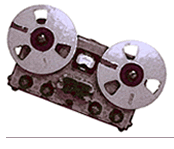


|
Paul Lansky (1944) has been using computers to create music for some time. Attending Princeton University as a graduate student in the 1960's (where he is now chair of the Department of Music), Lansky applied the techniques of "twelve-tone tonality" that he had studied with composer George Perle at Queen's College to his computer-generated compositions. A fascination with timbre as a vehicle for carrying musical structure led Lansky to pursue applications of the computer to modify everyday sounds such as speech and ambient noise. A turning point in this regard was one of his most successful early tape compositions, Six Fantasies on a Poem by Thomas Campion (1979), in which the voice of Hannah MacKay (also his wife) is digitally transformed to create a musical narrative out of Thomas Campion's 1602 poem "Rose-cheekt Lawra." In the past two decades, Lansky's music has generally employed a tonal language often described as "accessible." Such a description, |
however, hardly does justice to the subtleties of harmonic and timbral evolution that engage the listener from beginning to end of each piece. In representative compositions such as Idle Chatter (1985), Smalltalk (1990), Things She Carried (1996), and Chords (1998), an attractive surface complexity induces repeated listenings, with each one providing a prismatic and rewarding experience. Lansky also writes music for instruments: he calls this "protein music," as opposed to the "silicon music" in which he more frequently engages. Recent works have included Three Moves for Marimba (written for Nancy Zeltsman), Semi-Suite (a classical guitar suite for David Starobin), and Odd Moments (written for George Perle's 85th birthday celebration). These compositions similarly reflect Lansky's skill at molding a minimal amount of material into different shapes, shining different lights on it as it were, and letting us hear it from different angles. |